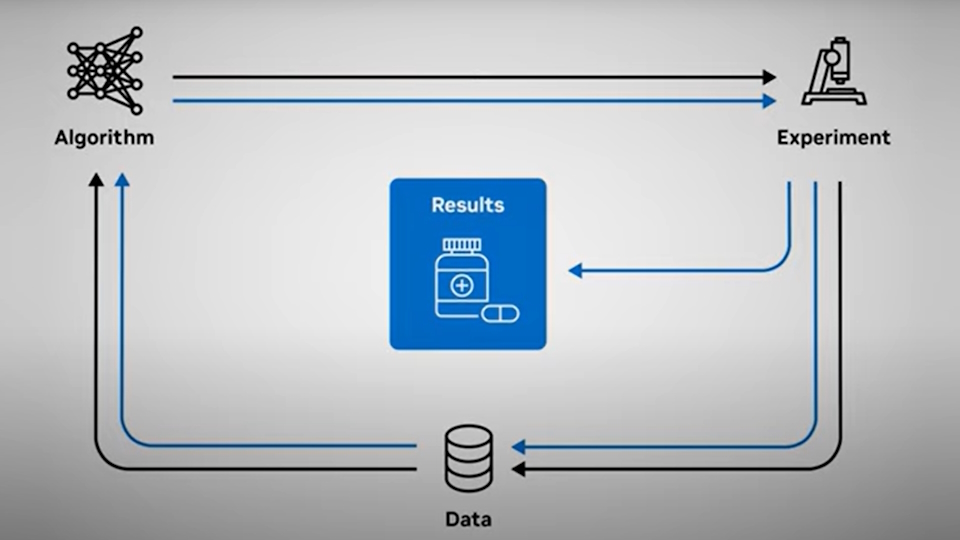Genentech, NVIDIA partner on ‘lab-in-a-loop’ AI platform

Aviv Regev, executive vice president and head of Genentech Research & Early Development (gRED)
NVIDIA’s push into the life sciences sector has been rewarded by a wide-ranging deal with Roche’s Genentech subsidiary aimed at accelerating the use of generative artificial intelligence (GenAI) for the discovery and development of new biological medicines.
The multi-year agreement will “unlock scientific innovation and empower R&D at a scale previously unattainable in pursuit of novel therapies,” according to the two partners.
Like most of its peers in the biopharma sector, Genentech has been working on AI-powered technologies for drug discovery and development, coming up with a proprietary set of algorithms and other computational tools for new drug design.
At the heart of the alliance is the ‘lab-in-the-loop’ concept pioneered at Genentech’s Prescient Design accelerator unit. In a nutshell, that involves drawing on the company’s rich source of data to train algorithms that can then design new kinds of drug molecules that haven’t been tested before. Those can then be tested in the lab, enriching the dataset and in turn improving the algorithm, and the cycle repeats.

The alliance with NVIDIA aims to scale up the process and make it more efficient, but providing access to the tech giant’s recently launched NVIDIA DGX Cloud, described as the first supercomputer in the cloud. Genentech will also be able to tap into NVIDIA's BioNeMo service, first launched in 2022, which NVIDIA says “simplifies, accelerates, and scales” GenAI applications for computational drug discovery.
According to Genentech, the partnership will help to transform its GenAI models and algorithms into a “next-generation AI platform” operating at the interface between biology and computation.
Aviv Regev, head of Genentech Research & Early Development (gRED), said the alliance will bring “AI, the lab, and the clinic together to uncover otherwise inaccessible patterns in vast quantities of data, and to design experiments to test those patterns.”
Ultimately, the goal is to allow the company’s researchers to achieve a greater understanding of complex biomolecular patterns, improve the success rate of R&D, and deliver ‘multiplicative’, rather than additive, benefits for patients and healthcare providers.
“If we just do twofold better, that is a dramatic, radical shift for the betterment of human lives,” said Regev.
According to estimates by business consultancy Deloitte, the average cost of developing a new drug from discovery to market by top-tier pharma companies is approximately $2.3 billion and is a process that can take up to a decade.
AI-designed drugs have already started being tested in the clinic, with mixed results, and applying GenAI and large-language models (LLMs) to R&D remains in its infancy. Genentech’s approach is interesting, as it is more about an evolution in R&D, with conventional lab testing still an integral part of the process, even in the earliest stages.
“AI can play a transformational role in accelerating drug discovery and development, as it has across many parts of healthcare and life sciences,” said Kimberly Powell, vice president of healthcare at NVIDIA.
“Together, NVIDIA and Genentech are unlocking scientific innovation by developing and implementing AI models and algorithms that enable us to rapidly iterate and unearth insights.”













